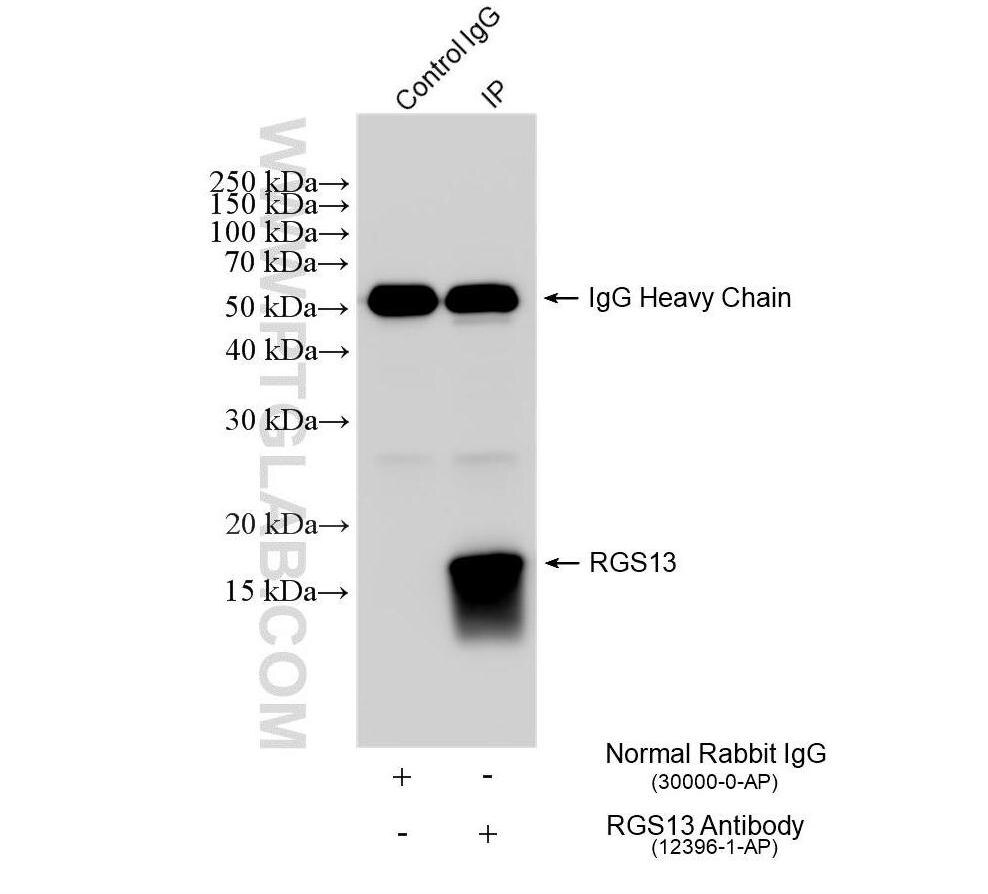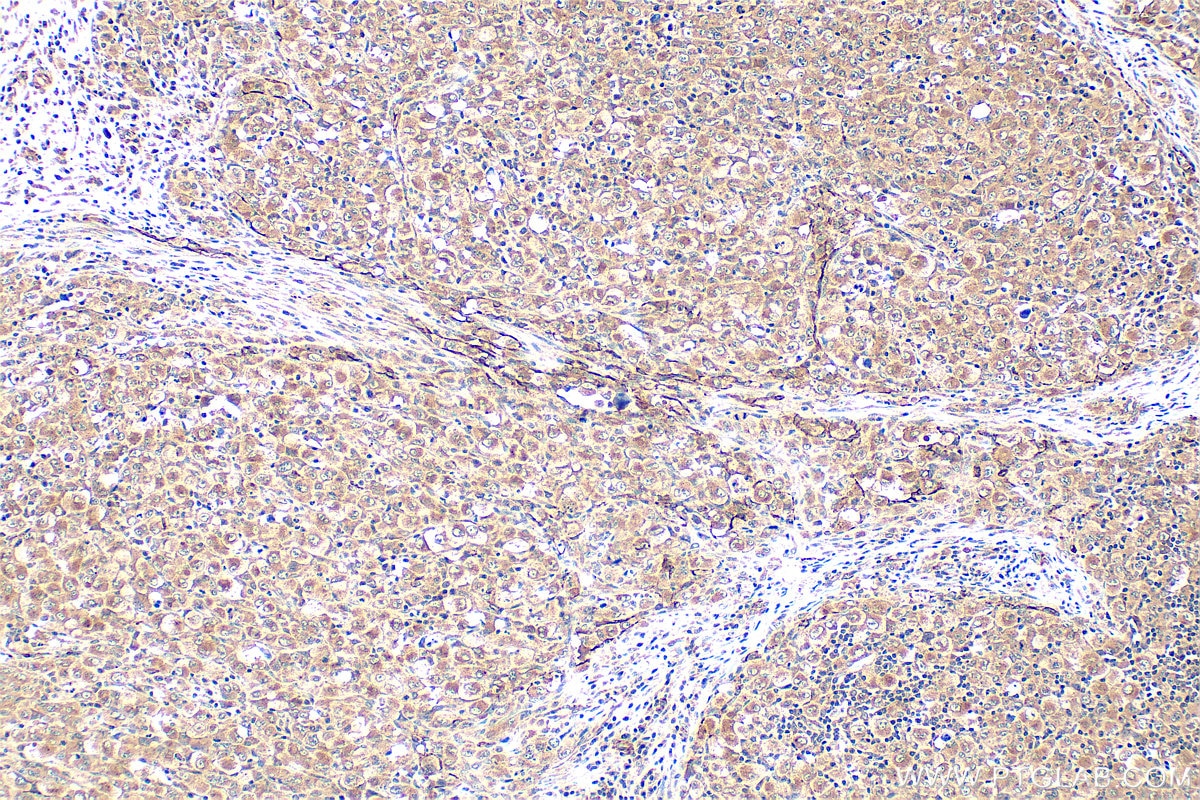Tested Applications
| Positive IP detected in | Ramos cells |
| Positive IHC detected in | human lymphoma tissue Note: suggested antigen retrieval with TE buffer pH 9.0; (*) Alternatively, antigen retrieval may be performed with citrate buffer pH 6.0 |
Recommended dilution
| Application | Dilution |
|---|---|
| Immunoprecipitation (IP) | IP : 0.5-4.0 ug for 1.0-3.0 mg of total protein lysate |
| Immunohistochemistry (IHC) | IHC : 1:50-1:500 |
| It is recommended that this reagent should be titrated in each testing system to obtain optimal results. | |
| Sample-dependent, Check data in validation data gallery. | |
Product Information
12396-1-AP targets RGS13 in IHC, IP, ELISA applications and shows reactivity with human samples.
| Tested Reactivity | human |
| Host / Isotype | Rabbit / IgG |
| Class | Polyclonal |
| Type | Antibody |
| Immunogen |
CatNo: Ag3077 Product name: Recombinant human RGS13 protein Source: e coli.-derived, PGEX-4T Tag: GST Domain: 1-159 aa of BC016667 Sequence: MSRRNCWICKMCRDESKRPPSNLTLEEVLQWAQSFENLMATKYGPVVYAAYLKMEHSDENIQFWMACETYKKIASRWSRISRAKKLYKIYIQPQSPREINIDSSTRETIIRNIQEPTETCFEEAQKIVYMHMERDSYPRFLKSEMYQKLLKTMQSNNSF Predict reactive species |
| Full Name | regulator of G-protein signaling 13 |
| Calculated Molecular Weight | 159 aa, 19 kDa |
| Observed Molecular Weight | 17-19 kDa |
| GenBank Accession Number | BC016667 |
| Gene Symbol | RGS13 |
| Gene ID (NCBI) | 6003 |
| Conjugate | Unconjugated |
| Form | Liquid |
| Purification Method | Antigen affinity purification |
| UNIPROT ID | O14921 |
| Storage Buffer | PBS with 0.02% sodium azide and 50% glycerol, pH 7.3. |
| Storage Conditions | Store at -20°C. Stable for one year after shipment. Aliquoting is unnecessary for -20oC storage. 20ul sizes contain 0.1% BSA. |
Background Information
Regulator of G-protein signaling 13 (RGS13) is an R4 subfamily member that attenuates both Gαi and Gαq-dependent signaling including chemokine reponses in B cells (PMID: 11875076, PMID: 12193720). RGS13 interacted with both Gialpha and Gqalpha and strongly impaired signaling through G(i)-linked signaling pathways, including signaling through the chemokine receptors CXCR4 and CXCR5 (PMID: 12193720). Human mast cells express multiple RGS proteins, of which RGS13 is among the most abundant (PMID: 19017978).
Protocols
| Product Specific Protocols | |
|---|---|
| IHC protocol for RGS13 antibody 12396-1-AP | Download protocol |
| IP protocol for RGS13 antibody 12396-1-AP | Download protocol |
| Standard Protocols | |
|---|---|
| Click here to view our Standard Protocols |






